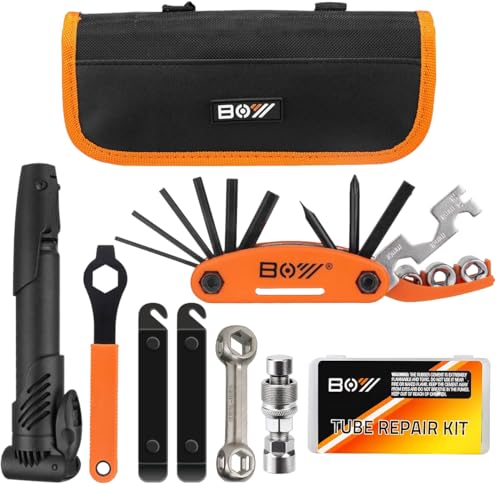Balancing a full-time job and training for a triathlon might seem daunting, but I’ve discovered it’s entirely possible with the right approach. When I first decided to take on this challenge, I was worried about finding the time and energy after long workdays.

But with some planning and dedication, I managed to fit in swim sessions, bike rides, and runs into my busy schedule. In this article, I’ll share the strategies that helped me stay on track and make the most out of every training opportunity. Whether you’re a seasoned athlete or just starting out, you’ll find tips that can help you achieve your triathlon goals without sacrificing your career.
Setting Realistic Goals
Setting achievable goals ensures steady progress without overwhelming your schedule.
Assessing Your Current Fitness Level
I start by evaluating my current fitness. I track my swimming speed, biking distance, and running pace using a fitness app. This data helps identify strengths and areas needing improvement. Additionally, I consider my job hours and energy levels to determine how much time I can dedicate to training each week.
Defining Your Triathlon Objectives
I set specific triathlon goals based on my fitness assessment. For example, I aim to complete a sprint triathlon within six months. Breaking it down, I plan to swim 500 meters, bike 20 kilometers, and run 5 kilometers. These targets keep me focused and motivated, ensuring each training session aligns with my overall objective.
Creating a Balanced Training Schedule
Creating a balanced training schedule is essential for managing both work and triathlon training. I structure my week to ensure each discipline gets attention without overwhelming my routine.
Weekly Training Plan
Planning a weekly training schedule enhances consistency and progress. I divide my training sessions as follows:
| Day | Activities | Duration |
|---|---|---|
| Monday | Swim, Run | 60 mins |
| Tuesday | Bike, Strength Training | 90 mins |
| Wednesday | Run | 45 mins |
| Thursday | Swim | 60 mins |
| Friday | Bike | 60 mins |
| Saturday | Long Bike, Long Run | 120 mins |
| Sunday | Active Recovery or Rest | – |
This structure balances swim, bike, and run sessions with strength training and active recovery.
Incorporating Rest Days
Including rest days keeps energy levels up and prevents injuries. I designate Sunday as a full rest day and adjust active recovery based on the week’s training intensity.
Efficient Time Management
Balancing a full-time job with triathlon training demands strategic time management. I implemented methods to maximize my productivity without compromising my training goals.
Prioritizing Work and Training
I ranked my daily tasks to focus on high-impact activities first. Allocating specific time blocks for work and training ensured neither was neglected. Early mornings became my training sessions, allowing me to start the day energized. At work, I minimized distractions by setting clear boundaries and using productivity tools to maintain focus. By prioritizing effectively, I maintained a steady progress in both my career and triathlon preparation.
Utilizing Short Workouts
Incorporating short, intense workouts fit seamlessly into my busy schedule. High-Intensity Interval Training (HIIT) sessions required only 30 minutes, providing maximum benefits in minimal time. I integrated quick strength training routines during lunch breaks and utilized commute times for running or cycling. These efficient workouts maintained my fitness levels and kept my training consistent, even on the most hectic days.
Nutrition and Recovery Strategies
Balancing triathlon training with a full-time job requires careful attention to nutrition and recovery. Here’s how I optimize my diet and ensure effective recovery.
Meal Planning for Athletes
I structure my meals to support intense training and fit my hectic schedule. Each meal contains a specific balance of macronutrients to fuel my workouts and aid recovery. For instance:
- Breakfast: Scrambled eggs with spinach and whole-grain toast provide protein and complex carbohydrates.
- Lunch: Quinoa salad with grilled chicken, mixed vegetables, and avocado offers a mix of protein, healthy fats, and fiber.
- Dinner: Baked salmon, brown rice, and steamed broccoli deliver essential omega-3s, carbohydrates, and vitamins.
- Snacks: Almonds, Greek yogurt, and fruit ensure I maintain energy levels throughout the day.
I prepare meals on Sundays, portioning them into containers for easy access during the week. This planning minimizes time spent cooking and ensures I maintain a balanced diet despite my busy work schedule.
Importance of Sleep and Recovery
Prioritizing sleep is essential for my training and overall well-being. I aim for seven hours of quality sleep each night to support muscle repair and cognitive function. Establishing a consistent bedtime routine helps me unwind and maintain a regular sleep schedule.
On training days, I incorporate active recovery techniques such as stretching and foam rolling to reduce muscle soreness and improve flexibility. Additionally, I schedule at least one full rest day each week to allow my body to recover fully, preventing injuries and enhancing performance in subsequent training sessions.
Balancing Work, Life, and Training
Managing a full-time job while training for a triathlon requires careful balance. Here’s how I navigate work, personal life, and training.
Communicating with Employers and Family
I discuss my training schedule with my employer to ensure flexibility. Sharing my goals helps them understand my time commitments. At home, I involve my family by explaining my training needs and seeking their support. We plan together to accommodate early morning workouts and evening sessions, ensuring everyone stays on the same page.
Stress Management Techniques
« Triathlon Gear for Cold Weather Racing: Essential Equipment & Tips
Olympic Triathlon Distances: Comprehensive Swim, Bike, Run Breakdown »
I prioritize stress management to maintain balance. Incorporating regular meditation sessions helps me stay focused. I schedule short breaks during work to recharge and prevent burnout. Additionally, I practice deep breathing exercises after intense training to relax my mind and body. Maintaining a consistent routine keeps stress levels in check, allowing me to perform my best both at work and in training.
Essential Gear and Equipment
Having the right gear makes training efficient and enjoyable. I ensure my equipment meets the demands of each triathlon discipline.
Choosing the Right Triathlon Gear
Selecting appropriate gear is crucial for performance and comfort. I focus on these key items:
- Triathlon Suit: Aerodynamic and quick-drying, it transitions smoothly between swim, bike, and run.
- Wetsuit: Provides buoyancy and warmth during open water swims, essential for colder conditions.
- Bicycle: Lightweight and fitted to my body, it enhances speed and reduces fatigue over long distances.
- Helmet: Meets safety standards, offering protection without compromising ventilation.
- Running Shoes: Cushioned and supportive, they prevent injuries during extensive runs.
- Hydration System: Convenient bottles or vests ensure I stay hydrated during training sessions.
Managing Equipment with Limited Time
- Dedicated Storage: Assign specific places for each item, making it easy to find and pack equipment quickly.
- Regular Maintenance: Schedule routine checks and cleanings to keep gear in optimal condition and extend its lifespan.
- Multi-Use Tools: Invest in versatile equipment, such as multi-functional bikes or interchangeable parts, to minimize the number of items needed.
- Packing Lists: Create and follow checklists for each training session and race, ensuring nothing is forgotten and preparation is swift.
- Quick Access Bags: Use labeled bags for swim, bike, and run gear, allowing me to transition smoothly between disciplines without delays.
Conclusion
Balancing work and training wasn’t easy but it was totally worth it. Seeing my progress and achieving my triathlon goals gave me a sense of accomplishment I hadn’t felt before.
If I can manage to fit training into a busy schedule so can you. Keep pushing forward stay committed and enjoy every step of your triathlon journey.










